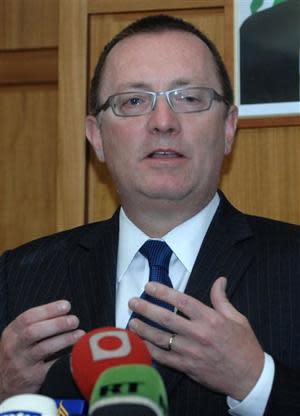 The Envoy
The EnvoyU.S. explains Tunisia talks with Tripoli envoys

The Libyan regime of Muammar Gadhafi was apparently seeking to embarrass the Obama administration when it announced Monday that it had been holding talks with U.S. officials.
The talks took place in Tunisia Saturday, Libyan regime spokesman Moussa Ibrahim told reporters in Tripoli Monday.
"This is a first step and we want to take further steps," Ibrahim explained as he issued a statement in Tripoli Monday, the AP reported. "We don't want to be stuck in the past; we want to move forward all the time," he added.
American diplomats--some temporarily out of pocket because Secretary of State Hillary Clinton and her entourage were flying from Greece to India Monday--later fired back with a backgrounder statement portraying the meeting very differently. The statement took issue with the Libyan regime's characterization of the negotiations as the beginning of a "dialogue" or a "U.S. channel." Instead, State officials made it clear that the meeting was simply a one-off affair, organized around one central message: Gadhafi has to go.
U.S. officials "met with regime representatives to deliver a clear and firm message that the only way to move forward is for Gadhafi to step down," a State Department spokesperson told journalists Monday on background.
"This was not a negotiation: It was the delivery of a message," the official continued. "The message was simple and unambiguous and the same message we deliver in public--Gadhafi must leave power so that a new political process can begin that reflects the will and aspirations of the Libyan people."
"We have no plans to meet again, because the message has been delivered," the official added.
The participating U.S. officials at the Tunisia talks were the State Department's top diplomat for the Middle East, Assistant Secretary of State for Near East Affairs Jeff Feltman; former U.S. ambassador to Libya Gene Cretz; and the National Security Council's Derek Chollet, the official said.
The United States declined to identify the officials representing Tripoli in the discussions.
U.S. officials also said that Washington's partners in the Contact Group on Libya--the international coalition of powers involved in the Libyan intervention--were informed about the meetings.
Secretary of State Hillary Clinton announced at the Contact Group meeting in Istanbul Friday that the United States would bestow diplomatic recognition on the Libyan rebel opposition group called the Transitional National Council until a new Libyan interim government is established.

